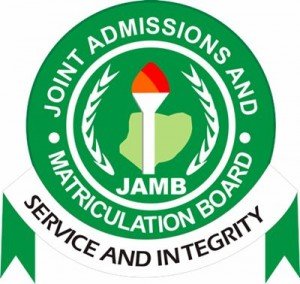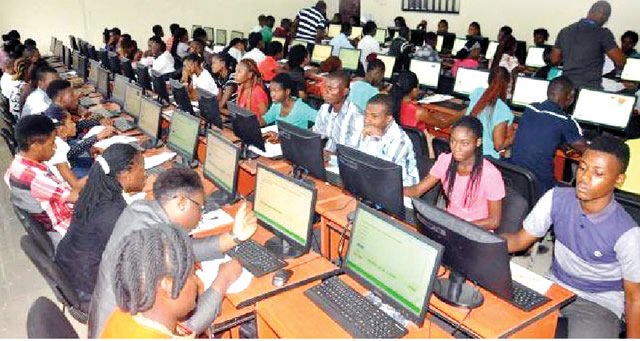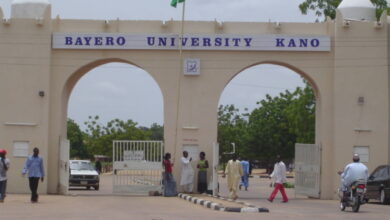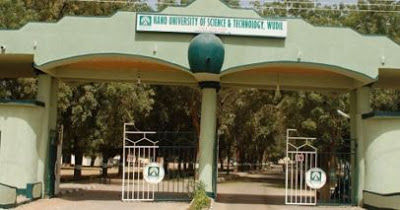NECO Economics Objective & Essay 2023 – Questions and Answers: OBJ

The National Examination Council (NECO) is an important examination body in Nigeria, responsible for conducting the Senior School Certificate Examination (SSCE). One of the subjects included in the NECO SSCE is Economics. In this article, we will provide you with the NECO Economics Objective & Essay 2023 questions and answers to help you prepare for the examination.
Exam Details
The NECO Economics paper 1 and 2 is scheduled to be written on Tuesday 1st August 2023. The exam consists of two sections: Objective and Essay. The Objective section, also known as the OBJ section, will start at 10:00 am and end by 11:00 am. The Essay section will follow, starting at 11:30 am and ending at 1:00 pm.
Note: This questions may not be 100% accurate, This article is meant to guide students for their exams.
NECO Economics Objective Questions 2023
Question 1
The first question in the Objective section is related to the production possibility curve for maize and cotton. The question provides a diagram depicting the curve. Candidates are required to analyze the impact of bad weather on the harvest of both crops and identify the movement that represents this change.
Question 2
The second question in the Objective section focuses on equilibrium in the market for a particular good. Candidates are presented with a scenario where a change occurs, resulting in a new equilibrium with a higher price and a lower quantity traded. The task is to identify the change that caused this shift.
Question 3
The third question explores the concept of government subsidies in relation to the production of pineapples. Candidates are asked to determine the likely effect of a government subsidy on the price, costs, revenue, and supply of pineapples.
Question 4
The fourth question examines the potential disadvantage for a trade union when advocating for an increase in its members’ pay. Candidates are required to identify the factor that could undermine the trade union’s argument for a pay raise.
Question 5
The fifth question involves a Japanese car manufacturer’s decision to produce cars in a factory located in Europe. Candidates are tasked with identifying the reasons why the manufacturer might have chosen to establish a production facility in Europe.
Question 6
The sixth question revolves around the removal of import quotas by a government. Candidates are expected to analyze the likely result of this policy change, considering its impact on domestic production, unemployment, exports, and the balance of trade deficit.
Question 7
The seventh question delves into the concept of externalities in economics. Candidates are presented with a scenario where a manufacturing company introduces a new technology that reduces pollution. The task is to identify the type of externality associated with this situation.
NECO Economics Essay Questions 2023
Question 1
The first essay question requires candidates to define a centrally planned economy and outline four features of a capitalist economy. A centrally planned economy is characterized by government control over the allocation of resources and production decisions. On the other hand, a capitalist economy is driven by private ownership of resources and market forces.
Question 2
The second essay question focuses on cost functions and requires candidates to analyze a table depicting the cost function of a firm that produces plastic plates. Candidates are expected to calculate average fixed cost (AFC) at different output levels and explain why the average fixed cost declines as output increases.
Question 3
The third essay question explores the concepts of peasant farming and commercial farming. Candidates are required to provide definitions for both terms and describe five ways in which agriculture contributes to the economic development of their respective countries.
Question 4
The fourth essay question asks candidates to distinguish between small-scale production and large-scale production. Candidates should highlight the differences in capital outlay, output level, and other relevant factors. Additionally, candidates are required to describe five internal economies of large-scale production.
Question 5
The fifth essay question focuses on direct and indirect taxation. Candidates should differentiate between these two types of taxes and highlight the advantages of indirect taxation for developing countries.
Question 6
The sixth essay question requires candidates to explain the differences between ad valorem tax and specific tax, as well as progressive tax and regressive tax. Additionally, candidates should provide three reasons why the government in their respective countries imposes indirect taxes.
Question 7
The seventh essay question explores the contributions of financial institutions to the economic development of a country. Candidates should outline four specific contributions, such as investments in productive sectors, facilitation of international trade, provision of loans, and the provision of financial and management advice.
Question 8
The eighth essay question focuses on the roles and distinctions between a central bank, a bank, and a non-bank financial institution. Candidates should define each term and highlight the differences between them. Additionally, candidates should outline four contributions of financial institutions to the economic development of their respective countries.
Question 9
The ninth essay question requires candidates to define public debt and explain four reasons why countries in West Africa continue to incur debts.
Question 10
The tenth essay question explores the concept of export promotion. Candidates should define export promotion and describe four measures that the government of their respective countries can adopt to encourage production for export.
Conclusion
In conclusion, the NECO Economics Objective & Essay 2023 examination covers a wide range of topics, including production possibilities, market equilibrium, subsidies, trade unions, international trade, taxation, and financial institutions. By thoroughly understanding and preparing for these questions, candidates can increase their chances of performing well in the exam. Good luck!













